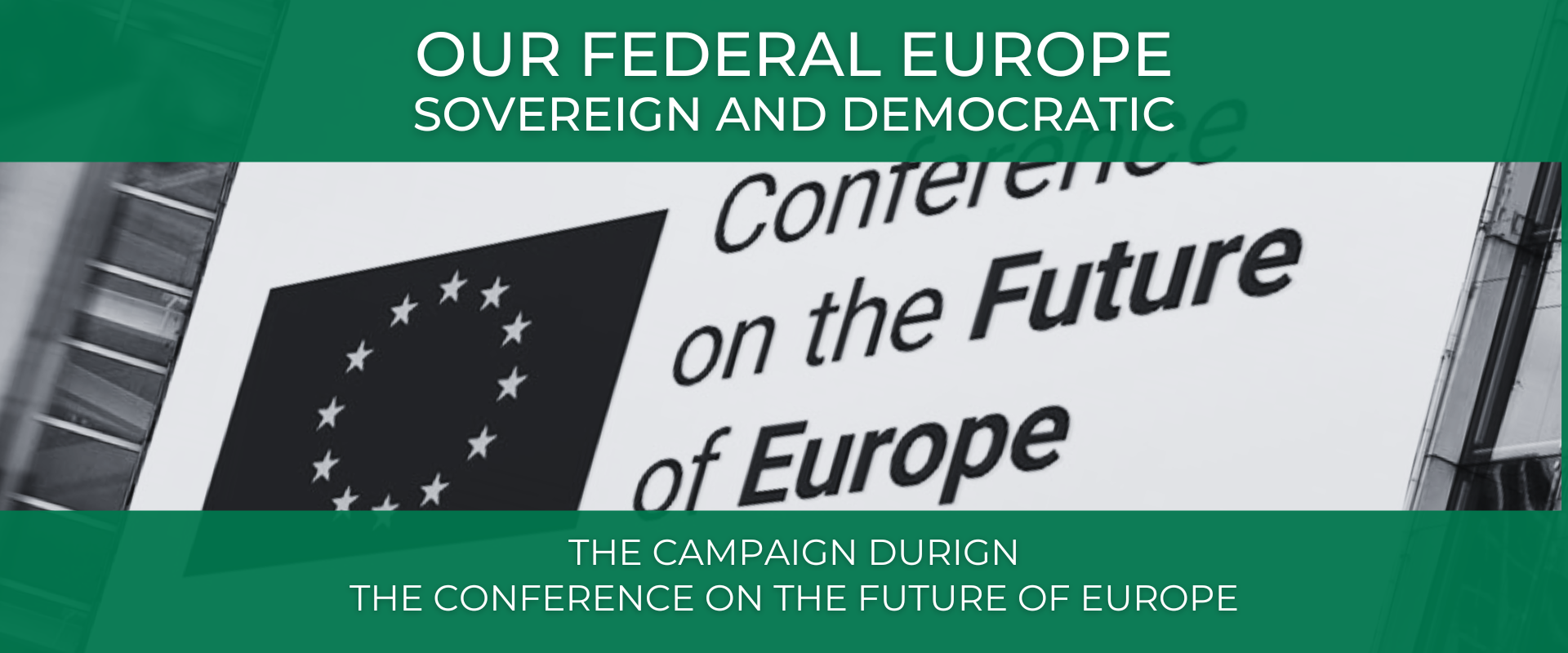The Conference on the future of Europe is a unique and urgent opportunity to launch a concrete project for a stronger political Union of a federal nature, as the necessary complement of the steps already taken in the direction of a financial and fiscal union, involving citizens in a transparent and participatory process.
It is the ideal political framework in which to address the question on how we, as Europeans, can lead a successful transition towards a new model of sovereign political Union, strengthening the functioning of participative democracy, rule of law and sustainable development.
The Conference is also the ideal framework to develop the concept that, in the future of Europe, the necessary drive for subsidiarity - both strengthening competences and powers by joining forces at European level, and devolving new responsibilities to sub-national levels - must always be combined with an increased truly democratic participation.
UEF is persuaded that in order to respond to citizens’ questions, concrete proposals for a new Treaty must emerge, even if some countries and some political forces might not immediately share this view.
These reforms must be focused on:
- the creation of a fiscal capacity of the European Union, so that it can collect the resources it needs to implement its policies on its own. The fiscal power to be exercised in line with the priorities of the European political agenda is a necessary condition for the emergence of a European sovereignty able to operate in the name of the common interest of European citizens and to achieve fairer taxation within the European Single Market.
- the attribution of new competences to the European Union so that it can be sovereign, according to the subsidiarity principle, at macroeconomic leveland in foreign and security policy and in research, health and training;
- the reform of the decision-making process in a way to grant the Union with sufficient autonomy to act in the new areas of competence, i.e. through an extension of the ordinary legislative procedure, with the co-decision of the European Parliament and the Council;
- measures to safeguard the democratic principles and the rule of law underpinning the European Union with regard to possible illiberal drifts in the Member States;
- the question of ratification by qualified majority of the EU Treaties. Since some member states might not initially share the project for a federal Union, the time has come for the majority of countries that agree to share a part of their sovereignty - in those fields that are no longer manageable at national level - to go ahead to build a Europe open to all, safeguarding the unity of the European Union, but at the same time restructuring EU in a way that it provides for different levels of integration and participation.
